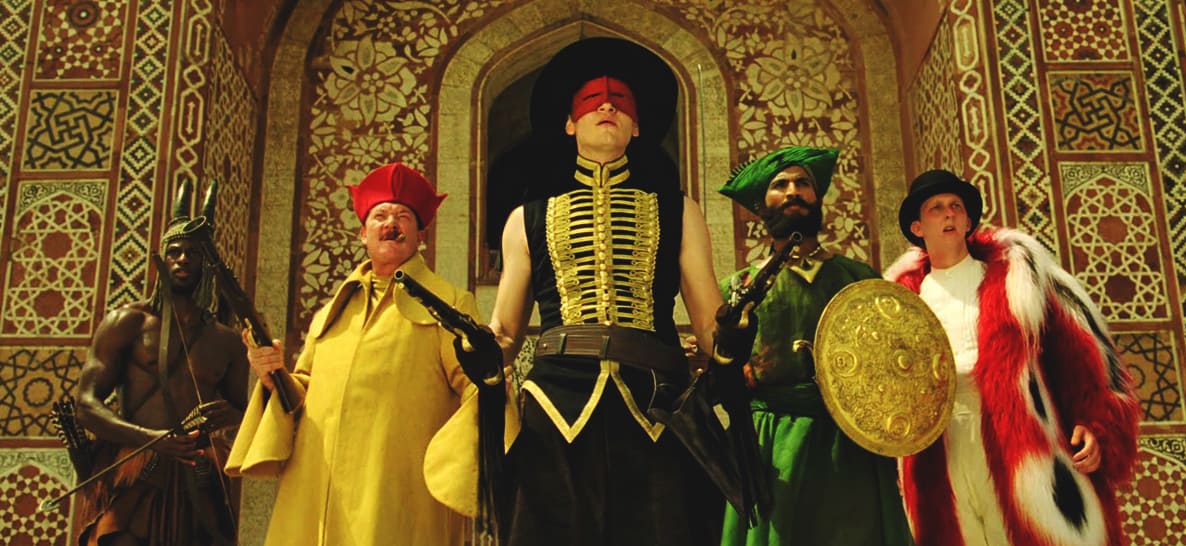David Oyelowo’s fame seems like it came from nowhere. But like any success story with years of time and effort in the making, his journey to Hollywood began 18 years ago in 1998 when he landed his first role on a British drama TV series. That’s not what makes his career remakable, though.
His highest profile role to date has been as Martin Luther King Jr. in Selma (which generated $66 million worldwide) and since then, the British-Nigerian actor and producer snagged roles left and right including a now celebrated performance in Queen of Katwe alongside Lupita Nyong’o. Each role he plays, you’ll notice, follows a particular theme: His characters and the stories they tell matter. As a Christian in Hollywood, Oyelowo is drawn to roles that are inspiring, redemptive, important.
We recently talked with him about Queen of Katwe, his career, his faith and what’s next.
You’ve made a name for yourself in only taking certain kinds of roles; the only movies we see you in have a certain redemptive or commentary quality to them. How does Queen of Katwe fit into your philosophy of accepting roles?
I hope that when all is said and done with my career what will be said is not that I only did films of any certain kind, but the truth is that I do gravitate towards films that I personally would want to see, films that I hope have something to say and are meaningful. Those can be categorized as films that are redemptive, life-affirming and, of course, reflect my faith as a Christian and my place as a husband and a father.
I was really drawn to this character that I get to play in the film of Robert Katende who truly is a self-sacrificing individual. And this man doesn’t just talk about it, he actually does it. He works for a sports ministry out in Uganda and his role he believed, his calling, is to give these kids hope, to give them self-esteem by giving them love and chess is one of the means by which he does that. I find him to be an incredibly inspiring individual in real life so playing him is something I wanted to do.
What’s the connection between a Christian missionary working in Uganda and chess—why is Robert Katende spending his time doing this?
He’s spending the time doing it because he’s doing for others what he wishes was done for him. He was an orphan himself. He had incredible talents as a young kid. He was incredibly bright and played soccer, but he didn’t have any mentors. He didn’t have anyone around him to truly help him achieve the fullness of his potential.
He lived with his grandmother after his parents died and she passed away while he was still young and Uganda was going through a civil war at the time as well. So in talking to Robert, he basically sacrificed going on to become what I know would have been a fairly wealthy, affluent engineer. He lived in very modest accommodations with his wife and two kids. They have six other kids who he’s effectively adopted who live with them.
And all of those things as it pertains to chess, chess is a fantastic game for teaching life lessons. It’s kind of a metaphor for life in a sense. You know what your goal is, you need to be patient in achieving it, try and read what your opponents aims are to defeat you and try and think a couple steps ahead in order to progress. So I think the ministering side of it is truly giving these kids love. A lot them are orphaned themselves. A lot of them have been abandoned by their parents and what he said to me is if only one of these kids who I am teaching, who are under my care, go on to be responsible citizens, go on to be able to give love that I tried to give them to someone else I know that it will build this community. That is something I know God would look down on with a lot of joy.
Do you think Hollywood is realizing some of the contributions that Christians and Christianity make to society?
I think it’s about perspective. I think it’s a question of who’s telling the story. I know for a fact if I, as a Christian actor, am part of either getting a film made or am part of the telling of a story, I can bring my perspective. I can bring my truth, which is that I live a life built on faith and the results of that are undeniably positive in my own life. Therefore, if I’m able to be on a set, if I’m able as a producer to be part of building the story, I’m going to bring my truth to how that story is told.
Someone whose experience of religion or Christianity or faith is different will inevitably impose their own perspective on the story. So I think it’s less to do with the fact that Hollywood is waking up to the importance of faith, I can almost guarantee that in any one of those films that you are talking about there will be someone there who is able to defend the validity of why faith can be and often is a good thing. Now of course there are often times when the Church abuses its power but that’s more to do with human beings than it has anything to do with God. So it’s not to write off anyone’s opinion on things, but like I say it’s about perspective.
I mean there is a moment in Queen of Katwe where myself and the kids get into a prayer huddle and pray just before a tournament. That’s a scene that wasn’t scripted, but I knew it was something that Robert Katende actually does with chess players before they go into a tournament and because I share that perspective, because I share his faith, I said let’s pray. The kids who all are familiar with prayer and who are familiar with Robert’s faith immediately got into a huddle and we prayed and that made the film. I know that wouldn’t be in the film if I as a Christian weren’t there to basically exhort the virtues of my perspective and what I know to be true about the positive sides of my faith.
Do you see that as a responsibility you have as a Christian actor or do you see it as an organic thing because that’s who you are personally?
I think it just happens because of who I am and I think that’s what everyone does. They say when writers write, they should write what they know. I can almost guarantee that any filmmaker, the films they are making are reflective of what they believe or what they are drawn to or what they like and that’s as it should be. We are all varied in our outlooks and that’s why you want as many different people as possible telling stories. You want women telling stories, you want men telling stories, you want young people, older people, people of color, people from all over the world telling stories so that we can get a greater understanding of humanity.
I think that’s one of the greatest cultural impacts of movies is when different kinds of people are telling stories. I think what we’ve had up until recently is a lot of the same kinds of person’s perspective is being told in movies and that’s why it can be said that Hollywood is doing mostly this or is doing mostly that. I think that as the people telling the stories get varied we will all be richer for what is put out.






















